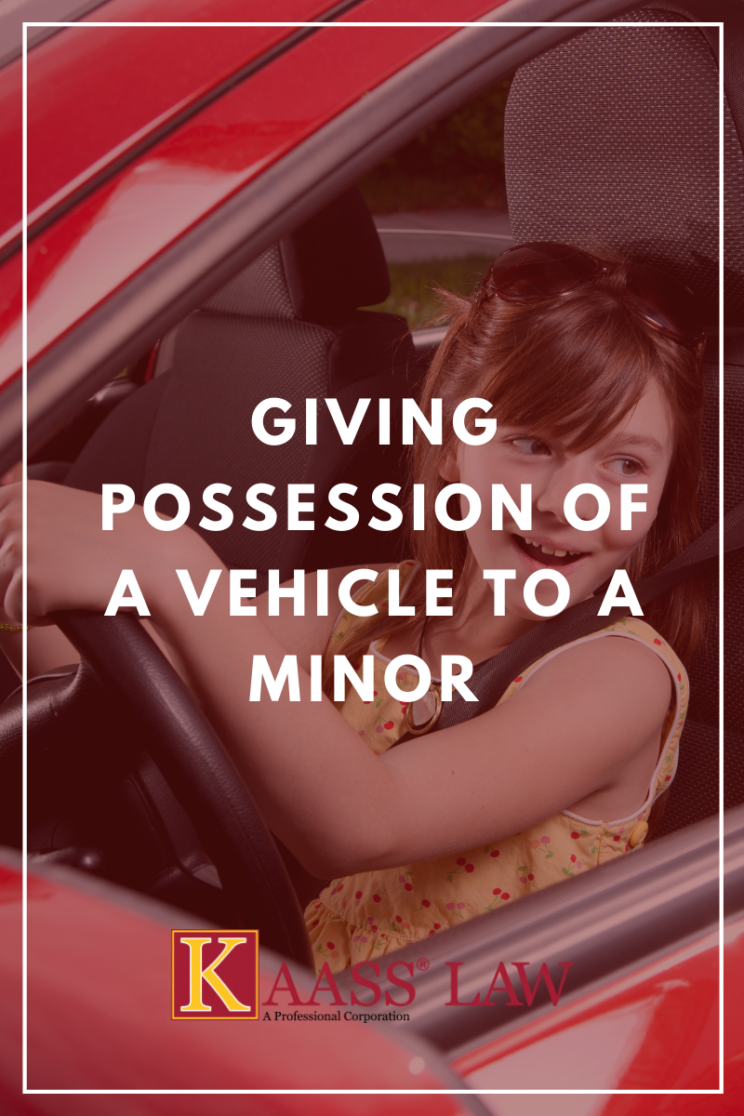Is it Illegal to Give Possession of Your Vehicle to a Minor?
Under California Penal Code 193.8 PC, it is a crime for an adult to give possession of a vehicle to a minor.
When is it Illegal to Give Possession of Your Vehicle to a Minor?
It is a crime for an adult owner or possessor of a motor vehicle to give the vehicle to a minor when:
- that minor is intoxicated;
- has previously been convicted of certain crimes, or
- if the adult does not have any rights to the vehicle
What Previous Crimes Are Relevant for PC 193.8?
As mentioned above, it is a crime for an adult to give their vehicle to a minor when that minor has been convicted of certain crimes. These crimes include:
- reckless driving;
- underage DUI with a BAC of 0.05 or higher;
- DUI;
- DUI causing injury;
- gross vehicular manslaughter;
- vehicular manslaughter; and
- vessel manslaughter
What is Reckless Driving?
Reckless driving per California Vehicle Code 23103 VC makes it a crime to operate a motor vehicle with a willful or wanton disregard for the safety of other people or property. In other words, reckless driving is when the driver knows they are driving in an unsafe manner but decides to continue to drive in that matter anyway.
What is Underage DUI?
Underage DUI is defined by the California Vehicle Code 23140 VC as an individual who is under 21 years old with a Blood Alcohol Content (BAC) of .05% or higher.
What is a DUI?
As per Vehicle Code 23152 VC, it is unlawful for an individual who is under the influence of any alcoholic beverage to drive a vehicle. It is also unlawful for an individual who has a BAC of 0.08% or more, by weight, of alcohol in their blood to drive a vehicle.
What is a DUI Causing Injury?
As per Vehicle Code 23153 VC, a DUI causing injury is established when a driver drives under the influence and then causes bodily injury to another individual as a result.
What is Gross Vehicular Manslaughter?
Under California Penal Code 191.5(a) PC, gross vehicular manslaughter while intoxicated is the unlawful killing of a human being without malice aforethought, in the driving of a vehicle, where the driving was in violation of Section 23140 (underage DUI), 23152 (DUI), or 2f3153 of the Vehicle Code, that causes the unlawful act.
What is Vehicular Manslaughter While Intoxicated?
This crime is defined under Penal Code 191.5b PC, which essentially makes it a crime to commit a negligent act while driving under the influence resulting in the killing of an individual in the process.
What is Penal Code 192.5 PC Vessel Manslaughter?
Under Penal Code 192.5 PC, it is a crime to unlawfully kill an individual without malice aforethought while operating a boat.
What Are the Penalties for Giving Possession of a Vehicle to a Minor?
Should an adult give possession of their vehicle to a minor as per PC 193.8, they can face misdemeanor charges with imprisonment in county jail for not more than six (6) months and a maximum fine of $1,000.
Los Angeles DUI Accident Attorney
If you or a loved one has been charged with California Penal Code 193.8 PC, contact our Los Angeles criminal defense attorneys at (310) 943-1171 for a free consultation. Our attorneys will evaluate the details of your case. As well as, advise you about what to expect and how you can proceed.

